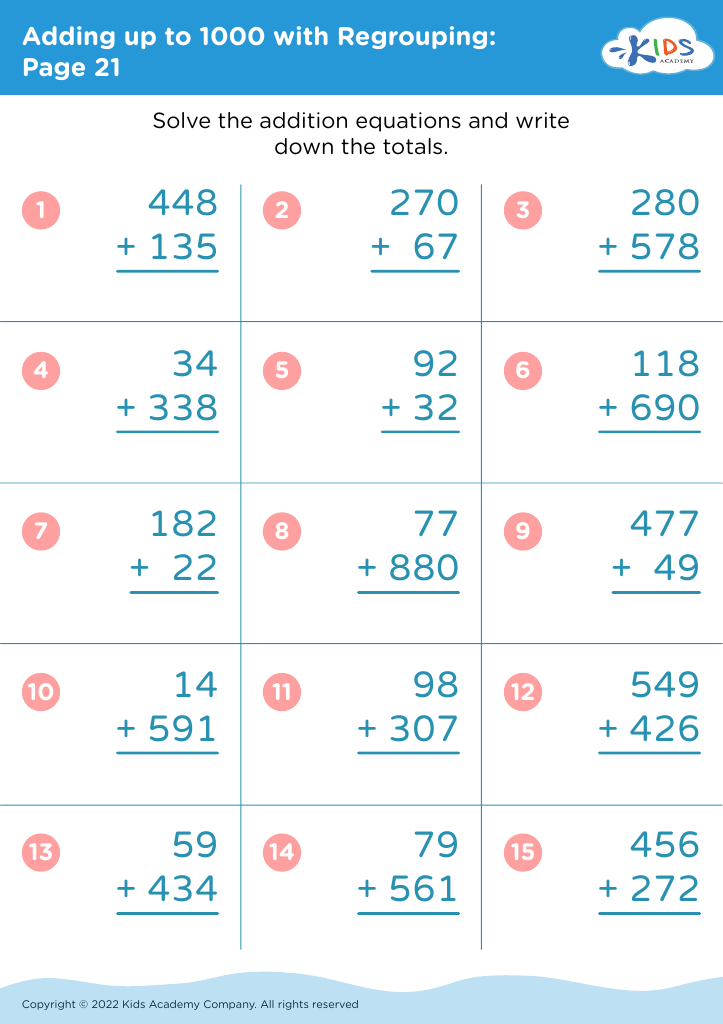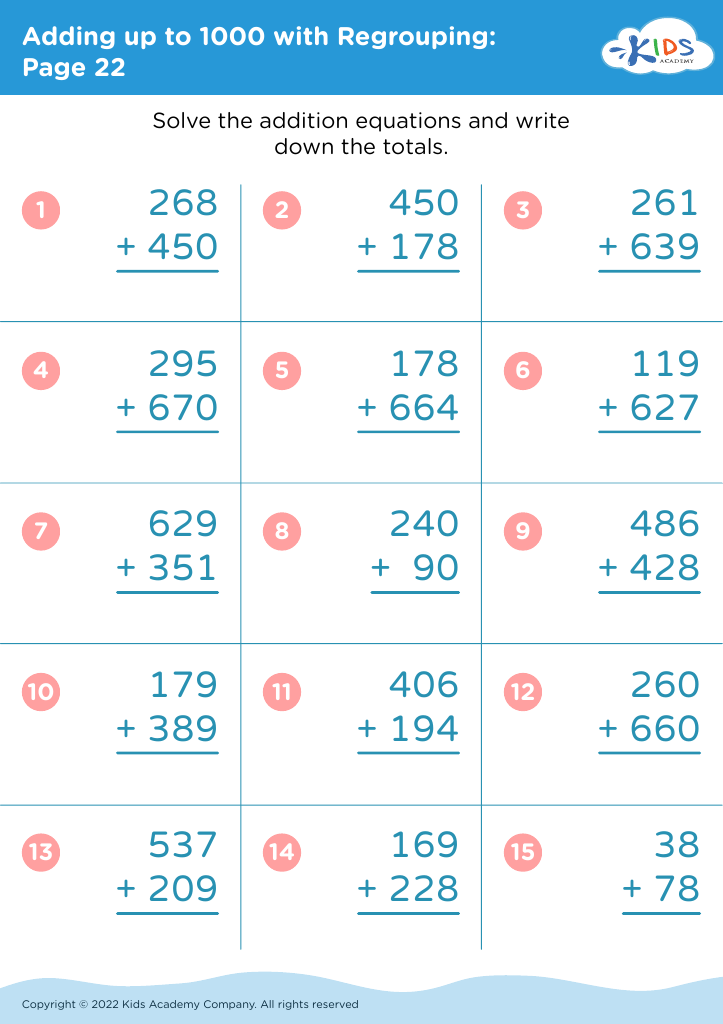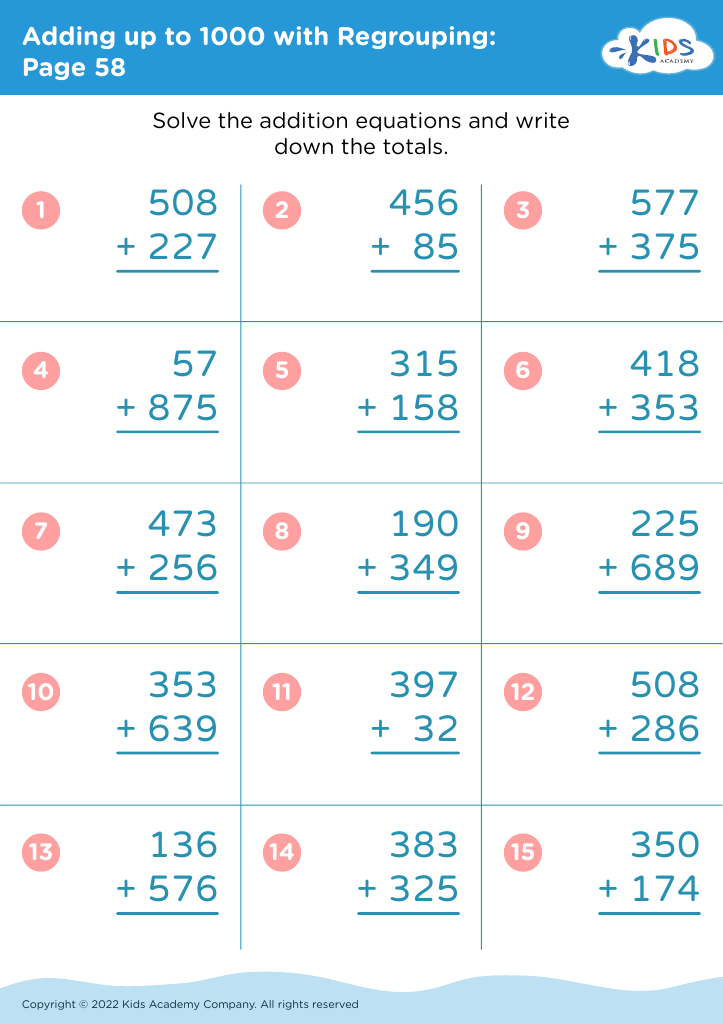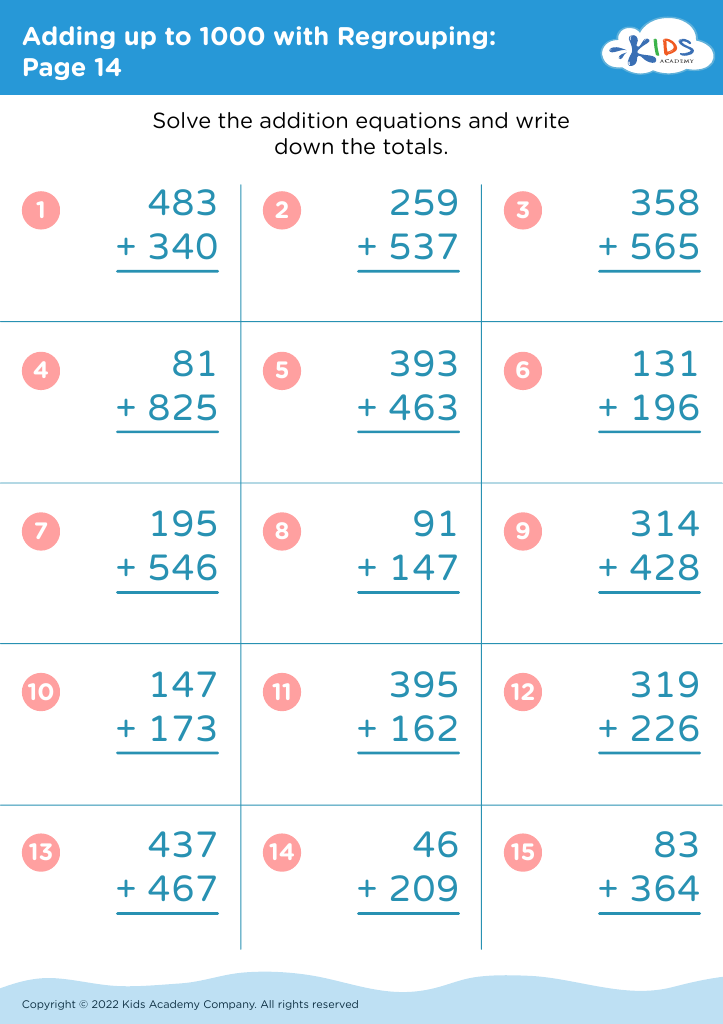Counting practice Adding up to 1000 with Regrouping Worksheets for Ages 6-8
7 filtered results
-
From - To
Enhance your child's math skills with our "Counting Practice Adding up to 1000 with Regrouping" worksheets, designed for ages 6-8. These engaging, printable exercises help children master adding large numbers. Encouraging step-by-step learning, the worksheets focus on regrouping techniques, fortifying a solid understanding of addition principles. Perfect for practice at home or school, these resources aim to build confidence and improve proficiency in arithmetic. Ideal for young learners, our sheets are crafted to bring enjoyment and success in mastering complex counting tasks. Unlock potential with our expertly designed math practice worksheets.
Counting practice and adding up to 1000 with regrouping are vital skills for children aged 6-8 because they lay the foundation for future mathematical learning and everyday problem-solving. At this age, children transition from basic addition to more complex operations, and such practice ensures they grasp essential mathematical concepts like place value, which is crucial for understanding more advanced math topics.
By practicing regrouping, children learn to carry over numbers, which enhances their understanding of how numbers work together and promotes mental mathematics agility. This skill strengthens their ability to solve larger, more complex problems, fostering confidence and a positive attitude toward math. Additionally, mastering this skill at a young age helps children develop logical thinking and systematic approaches to problem-solving, which are beneficial both academically and in everyday life.
Parents and teachers play an essential role in encouraging regular practice, offering positive reinforcement, and making math relatable by incorporating it into daily activities. Engaging children with fun and interactive methods, such as games and real-life scenarios, can make the learning process enjoyable and meaningful. Ensuring children build strong foundational skills at an early age ultimately equips them with the critical tools necessary for academic success and practical life skills.





















